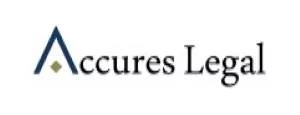The Central Government, under the authority of Section 159 of the Patents Act, 1970 (39 of 1970), has revised the Patents Rules, 2003 and published in Official Gazette dated 15 March 2024, as:
Key Takeaways:
The Patent rules, now known as the Patents (Amendment) Rules, 2024, will be effective from March 15, 2024, the date of their publication in the Official Gazette.
The time frame for applicants to inform the Controller in writing about details regarding other patent applications filed in any country is three months from the issuance date of the first statement of objections (first examination report) on Form 3(in sub-rule 2 of rule 12).
In case of foreign filing (for sub-rule 3 of rule 12 sub-rules 3, 4, and 5), the Controller:
- may utilize accessible databases to consider information about applications filed in countries outside India, when necessary.
- may, with recorded reasons in writing, instruct the applicant to submit a fresh statement and undertaking using Form 3 within two months from the date of such communication.
- has the authority, notwithstanding the rules, to excuse delays or extend the time for filing Form 3 for up to three months upon request made using Form 4 (time extension request).
A new sub-rule (2A) has been added after
sub-rule (2) of Rule 13 regarding
divisional application in Specifications (Form
2).
In a divisional application, the specification
must include a specific reference to the
number of the original application from which the
divisional application is derived.
Furthermore, it allows the patent applicants to file additional applications, if they choose to do so, including those concerning inventions disclosed in the original (provisional or complete specification) or in a following application(s) filed.
The timeframe for submitting a request for examination (RFE) is changed. The RFE must be submitted within thirty-one months from the date of priority or filing, whichever is earlier (in sub-rule (1) clause (i) of rule 24B).
A new clause (vi) has been added after clause (v) of sub-rule (1) of Rule 24B regarding timeframe for submitting a RFE for applications filed before the new rules come into effect, which says the timeframe under section 11B will remain as specified in the existing sub-rule (1), unaffected by the new amendments.
Rule 29A (new rule following rule 29) outlines the process for utilizing the twelve-month grace period specified in Section 31. This grace period allows for filing a patent application without the invention being considered anticipated. To avail of this grace period, applicants must submit Form 31 along with the prescribed fees as outlined in The First Schedule (Rule 7).
Under the amended Rule 55, if the Controller considers a representation against a patent application:
- If no prima facie case is found-
- The opponent will be notified.
- If the opponent does not request a hearing, the Controller will issue an order within one month, stating the grounds for refusing the representation.
- If a hearing is requested, the Controller will provide an opportunity for the opponent to be heard and will then issue an order within one month, stating reasons for refusal or prima facie acceptance.
- If a prima facie case is found-
- The Controller will issue an order within one month, recording reasons and notifying the applicant.
- Under the amended Rule 55, upon receiving the notice of representation against a patent application the applicant can choose to send their statement and any proof supporting their application within two months with a copy to the opponent.
Rule 55 (sub-rule 5) After considering statements, evidence from both the applicant and opponent, along with any submissions, the Controller may reject the opposition, request changes to the patent application, or refuse the patent altogether. This decision should be made within a month of completing the proceedings; followed by sub-rule 5A and 5B.
- The procedures outlined in rules 62 (2) to (4) [Hearing: If either party wants to speak in the proceeding, they must inform the Controller and pay the specified fee. The Controller may refuse to hear any party who hasn't given this notice. If a party plans to use new publications in the hearing, they must inform the other party and the Controller at least five days beforehand] apply as much as possible to the hearing process under sub-rule 5A.
- According to sub-rule (5B), if an opposition representation has been filed and notice issued, the patent application will be examined according to rule 24C.
Rule 56 (sub-rule 4) the Opposition Board will review the notice of opposition and related documents, then provide a report with reasons for each ground mentioned in the opposition within two months of receiving the documents.
Rule 70A (new rule following rule 70) allows inventors to request certificates of Inventorship for their patents, where:
- The Controller can issue the certificate upon request from the inventor, using Form-8A and payment of the required fee.
- (2) If the original certificate is lost, damaged, or destroyed, the Controller can issue a duplicate certificate upon request, with Form-8A, a statement explaining the circumstances, and fee payments outlined in The First Schedule (Rule 7).
Rule 80 (sub-rule 3)regarding renewal fees allows for payment of fees for multiple years in advance and if the fees are paid electronically for at least four years in advance, there's a ten percent reduction in the fee for such renewal.
Rule 110 modifications outline the structure of the qualifying examination for patent agents: Paper I covers the Patents Act (1970), Patents Rules (2003), Designs Act (2000), and Designs Rules (2001); Paper II focuses on drafting and interpreting patent specifications and design specifications; and a Viva Voce section.
Rule 131 concerns the submission of statements required under section 146(2), known as Form 27: Rule 131 (sub-rule 2) now requires submission of Form 27 statements every three financial years, instead of annually. These statements should start from the year following patent grant. The deadline remains six months after each three-year period. However, a three-month extension can be requested to the controller with a Form 4. Both patentees and licensees must provide these statements, verified by them or their authorized agents.
Rule 137 has been updated with renumbered sub-rules and the introduction of a new sub-rule: sub-rule (1) remains unchanged, stating that documents without specific provisions in the Act can be amended, and procedural irregularities can be corrected by the Controller if it doesn't harm anyone's interests; A new sub-rule (2) outlines exceptions where sub-rule (1) doesn't apply. These exceptions include matters related to extensions of time, specific clauses in various rules, and certain provisions related to rules 55, 80, 130, and 131.
Rule 138 reads, The Controller has the power to extend deadlines or excuse delays for up to six months upon request, as long as the request is made using Form 4 before the original deadline expires. This extension can be requested multiple times within the six-month period
The content of this article is intended to provide a general guide to the subject matter. Specialist advice should be sought about your specific circumstances.


